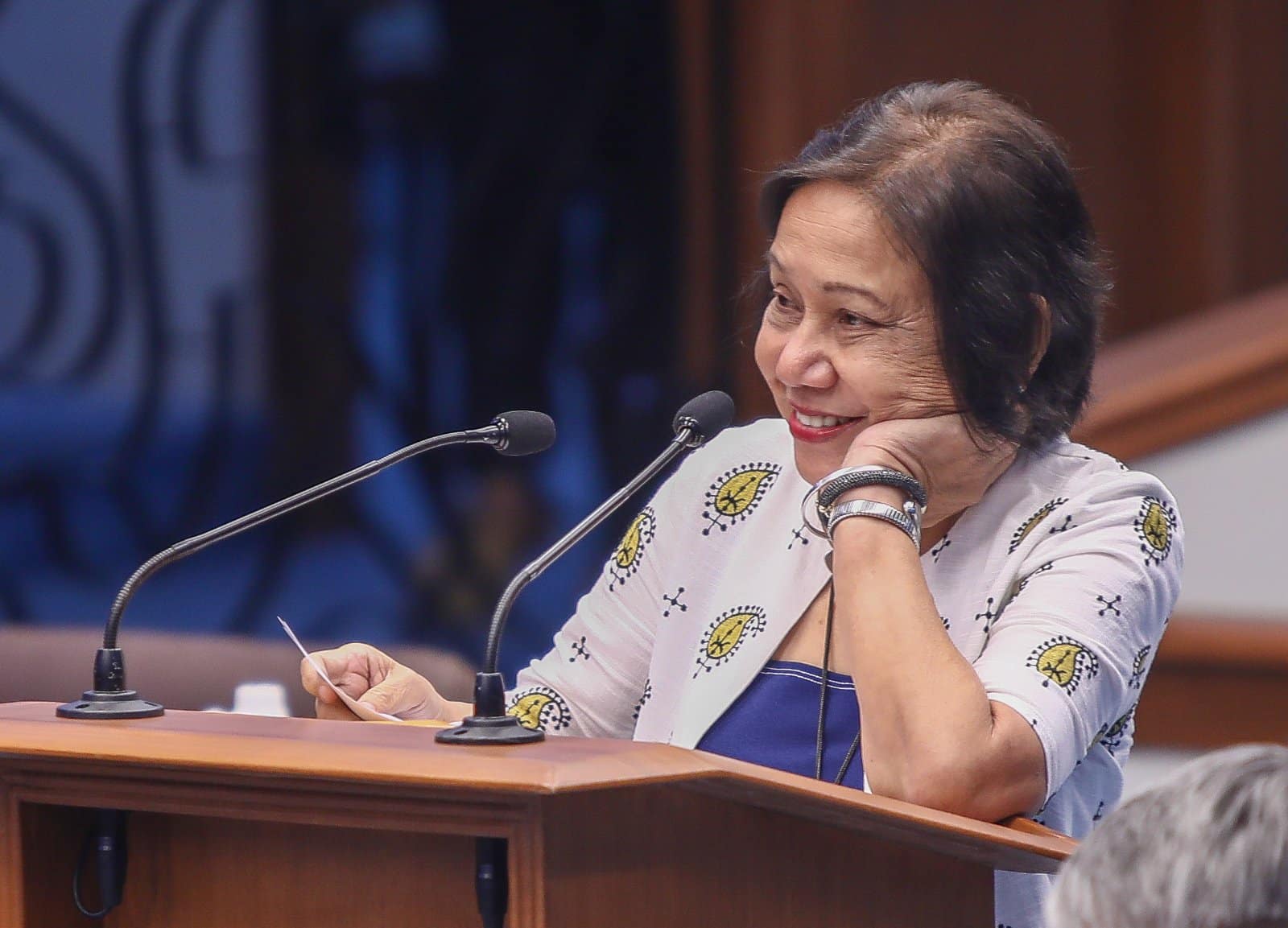Future of rice tariff law up for Senate plenary debate

Sen. Cynthia A. Villar (Senate Public Relations and Information Bureau)
The bill seeking to extend and amend the rice tariffication law (RTL), which has allocated P10 billion yearly since 2019 to help farmers but is expiring this year, has reached the plenary in the Senate and is now up for debate.
Sen. Cynthia Villar, chair of the Senate committee on agriculture and food, sponsored during the plenary session on Tuesday the extension and amendments to the RTL, or Republic Act No. 11203, which created the Rice Competitiveness Enhancement Fund (RCEF) from tariffs collected on imported rice.
Senate Bill No. 2779, or An Act Amending Republic Act No. 8178, or the Agricultural Tariffication Act of 1996, as amended by RA 11203, is contained in Committee Report No. 282.
The House of Representatives approved, on final reading last month, the changes to the RTL, including an increase in the RCEF to P15 billion from P10 billion.
Enacted in 2019, the RTL lifted quantitative restrictions on rice imports and introduced tariffs to protect local rice producers and respond to the appeals of stakeholders in the rice industry due to rising prices of staple food.
Article continues after this advertisementREAD: Tweaks in rice tariffication law urgent, says Marcos
Article continues after this advertisementThe RTL sought to directly benefit farmers from the liberalization of rice trading by providing at least P10 billion a year to the RCEF up to 2024.
Lifted restrictions
Of the P10-billion annual RCEF budget, P5 billion is allotted for the free distribution of farm machinery and equipment, P3 billion for the free distribution of high-quality inbred certified seeds, and P1 billion each for credit support, training of farmers, and extension.
Collections above P10 billion go to the Rice Farmer Financial Assistance (RFFA) under Republic Act No. 11598, which took effect on March 5, 2019, and will expire this year.
The RFFA is an unconditional financial assistance to farmers funded by excess tariff collection from rice imports, which in 2022 reached P12 billion.
The 2023 RFFA beneficiaries included farmers who registered in the Registry System for Basic Sectors in Agriculture as of June 30, 2023, and tilled 2 hectares of land or less.
Increased funding
The bill increases to P30 billion the proposed new RCEF fund that will be sourced from tariff on imported rice, with any deficiency to be supplemented by the General Appropriations Act.
Of this amount, P9 billion will be allocated for rice farm machinery and equipment; P6 billion for high-quality inbred rice seeds, propagation, distribution, and promotion; P8 billion for financial assistance to some 2.4 million rice farmers who are tilling 2 hectares and below; P2 billion for expanded rice credit assistance; P2.2 billion for training and extension; P1.4 billion for solar-powered water irrigation or water impounding irrigation projects; and P1.4 billion for composting facilities for biodegradable wastes.
The P2.2 billion for training and extension services is divided into P1 billion for farm schools through the Technical Education and Skills Development Authority or Tesda; P500 million for the Agricultural Training Institute; P300 million for the Philippine Center for Postharvest Development and Mechanization; P200 million for the Philippine Rice Research Institute, and P200 million for the Bureau of Soils and Water Management.
Under the proposed bill, the President can prohibit further importation or specify the volume to be imported during periods of excess supply of both imported and locally produced rice in the market.
Key amendments
It also seeks to empower the agriculture secretary to respond to a declaration of rice food shortage and extraordinary increases in rice prices, where the agency can sell through government agencies, such as Kadiwa outlets, and replenish its stocks through the procurement of locally produced rice from farmers and farmers’ cooperatives.
The new bill proposes to allow the DA to import when there is no available locally produced rice and to designate an importing authority, except the National Food Authority (NFA).
The measure likewise aims to strengthen the regulatory functions of the Department of Agriculture’s Bureau of Plant Industry, including registration and databasing of all grain warehouses for monitoring the rice sector.
The disposal of aging stocks with the NFA will be set at four weeks before expiration, according to the bill.
Villar cites ‘request’
The creation of the Program Management Office that will monitor both the RCEF and the National Rice Program, as well as the mid- and end-term evaluation of the RCEF, are also among the salient features of the new bill.
“These are substantial, as the sentiment of stakeholders with 181 farmers’ groups is a resounding request that the law be extended with amendments,” Villar noted.
In 2023, tariff collections from 3.6 million metric tons of rice imports reached P30 billion, or 30 percent more than the previous year’s P22.8 billion.
The increase was traced to the weaker peso value against the dollar and higher global rice prices.